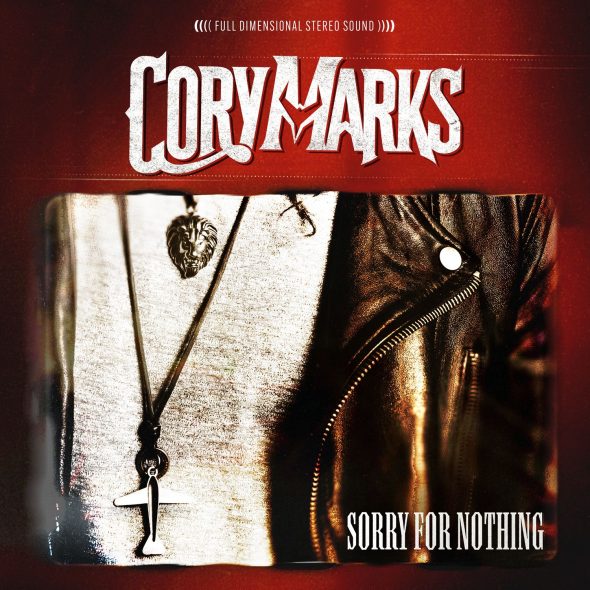10 mistakes to avoid
by Kenny Lewis
As a sound engineer and producer, over the years, I’ve seen practically everything that could possibly go wrong in a studio session happen. Not being prepared, not having the right team and not behaving professionally during the session can cost time and money and often results in a less-than-stellar recording. Before you schedule time to record your next album, here are 10 colossal mistakes you can easily avoid with a little planning and foresight.
- Choosing the wrong song for your audience. When preparing to go into the studio, artists often overlook song selection. Picking the right material to record can make or break a project. First, determine the desired result of the project. Are you making a quick recording to get gigs, or are you trying to get noticed as an artist? Either way, keep in mind what your audience will want to hear, not what you think is cool to play. Artists will say “I don’t want to play the pop music people pay to hear” and in the same breath say “I want to make a living playing music.” They would rather play something artistic and wonder why they can’t get well-paying gigs. Keep in mind that even famous artists have to play their hits during live shows. So when choosing songs to put budget behind, pick what your audience responds to.
- Not preparing/rehearsing all the parts. For bands and solo artists alike, preproduction is important. You need to plan out the recording and rehearse the parts. Make certain the song tempo, key and timing are all correct. Be sure introductions don’t drag on forever and that you get to your chorus by between 45 seconds to a minute. The faster you can get to the point with your audience, the better! As you work out the track, if you are a live band, check your parts at lower volumes. High volumes and tons of energy can make even bad parts sneak by. However, in a recording situation, these will stick out. Also a quick tip for engineers: When going through mixes and parts, listen at low volumes as well as high volumes. Your mix will sound different.
- Hiring an amateurish studio. The next huge mistake I see people make is not hiring a good studio. They think that their bandmate with some recording gear can handle the job or a friend with some studio gear can do it. For preproduction, maybe that is OK. For the real record, I would not chance it. Millions of artists out there are trying to succeed, and only a handful of labels put out records with budgets big enough to give you a career (doing original music as your only job). To stand a slim chance of rising out of the noise floor of releases that come out every day, your recording must sound completely world class. That means everybody on your team must be able to bat at that level. If your buddy with studio gear is not a world-class engineer, then you will sell what you do short and greatly reduce your chances for success. Ego and control issues are your worst enemy. You may have control doing it yourself, but trust me, people who are world-class engineers and producers generally pursue their passion with as much energy as any world-class performer. For example, I own a nice guitar and came up playing drums, but the flaw in me attempting to play on recordings I produce is that is I am an engineer/producer and just because I own a guitar and can play a couple chords, doesn’t mean I am ready to do sessions, especially at a world-class level competing with the top in the industry!
- Hiring bad musicians. Hiring bad players or beat makers can greatly hurt a recording. Everything I said about the studio also applies to the players. If you need to hire session people, get the best not your buds — unless your buds happen to already be in-demand players with sessions and successful albums under their belts. Stack the deck as much in your favor as you can. Hiring people who have done successful records can bring your record from local to national sounding.
- Bringing an instrument in poor condition. Make certain all your instruments are well maintained and in good condition. Check your intonation. Make certain you have good strings and heads. Professional session players already know this and are on top of the situation. If you are a beat maker, check things like the phasing of your keyboard tracks. Don’t sub-mix things and DO NOT pre-mix and master your beats. These kinds of things can hurt you at mix time.
- Failing to listen to how your instrument sounds in the room. I can’t stress this enough: Computers cannot fix everything! If the instrument sounds bad in the room, it will sound bad on the recording. All the plug-ins in the world cannot replace adjusting the sound in the room. There is no magic computer to replace a great musician playing well on a good instrument. So many times I’ve seen engineers try every trick in the book except swapping out the instrument or the player. For programmers, this holds true in your field as well. If things are not right in your sequence, fix them before rendering them to wav files for tracking your vocals. Adding effects and compression does not solve playing problems or issues with having the wrong keyboard sounds.
- Not getting permission to use the music. If you work with beat makers, make certain you get full multitracks of your sessions. Many times, artists do not do this, or beat makers refuse to give these out. But as an artist, you should have your files. Down the road, people may ask you for splits or mix up dates of the instrumental and if you cannot deliver the required information, it can cost you a sync deal or even a record deal — not to mention many times beat makers think it’s a good idea to master the beat. I know I just mentioned this, but as a mix engineer, nothing is more frustrating than dealing with a premastered mix. This will not help your record sound professional. Using a mastered beat means squashing it again in the mix and again in mastering. This leaves the music sounding distorted and flat, not punchy like a professional record. Sampling is another issue. Many beat makers think if they use a sample in the beat, it’s the artist’s job to clear it. As an artist, make certain you know where the parts came from, so you know your production is sample-free and legal. If it has samples, you cannot release the record without obtaining the proper clearance. This can be expensive and time consuming.
- Staying out late the night before a session. This may seem not important but to be on your A game, you have to be well rested, especially singers! Your body is your instrument. If you don’t rest, you greatly reduce your chances of having a good session. If you go out with your friends and hang out till the wee hours of the morning, you will seriously jeopardize your session. This rule is true as an engineer as well. During sessions after nights I can’t sleep, my ability to function, problem solve and cope with different personalities diminishes. Sometimes, things happen out of our control, but do what you can to be at your best for recording sessions.
- Behaving poorly during a session. A big mistake I see these days is poor session conduct. People show up late or show up with instruments they should never use on any gig, let alone in a place where tone and tuning are critical. I remember a time a guy opened his case only to realize his instrument had no strings on it. Musicians like that don’t take the studio seriously, consider it social vs. creative time and make excuses as to why they can’t do things right as opposed to doing what they should do to make a world-class record. With stiff competition in music, do you think you can get in the stadium let alone on the playing field like this?
- Not accurately budgeting the cost. I see people fall short in this area. I know everybody has a tight budget. Perhaps, you need to do fewer songs with good players, a good engineer and a producer, rather than do 15 with poor quality. Mediocrity does not move people in the industry. Figure out the cost of doing the project right, then work to raise that amount. Your record must be able to stand up to any record on the market. If it can’t, your chances for success are slim. A million people are moving a few units, rather than a few people moving a million units. Rising above the noise is hard, even at the major-label level. At the time I wrote this article before the end of the year, only one record had gone platinum in 2014 —the “Frozen” movie soundtrack. As someone who works in music, it is sobering to think with all the great artists out there nothing else made it to a million copies sold. As an artist, you need to stack as much in your favor as you can. Count the cost of making your recording better than the best it can be. You may say you can’t afford to do that, but in reality you can’t afford not to!
Kenny is a producer and mix engineer. As producer he is known for his work with Erika Van Pelt (from American Idol), Michael Sweet, and Stryper to name a few. As a mix engineer Kenny is known for his work with Freddie Jackson, Andre Ward, Stryper, Erika Van Pelt, Marty Walsh, as well as numerous tv and commercial spots. Kenny runs Mixed Emotions Music and uses Phase X speakers. To learn more about him visit www.mixedemotionsmusic.com or contact him at mixedemt@aol.com.
.



